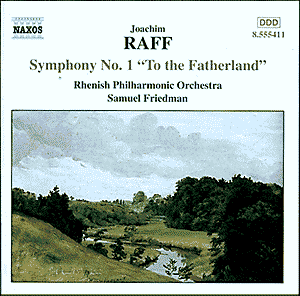 Composer: Jean Sibelius
Composer: Jean Sibelius
Works: Songs Volume 2: Hymn to Thais, Five Christmas Songs Op. 1, Eight Josephson Songs Op. 57, Sangen om korsspindeln (King Christian II) Op. 27 No. 4, Four Songs Op. 72 Nos. 3-6, Six Songs Op. 86, Sma flickorna
Performers: Monica Groop (mezzo), Love Derwinger (piano)
Recording: January 1994 in Stockholm (DDD)
Label: BIS-CD-657
Jean Sibelius, a titan of Finnish music, has left an indelible mark on the art song repertoire, as evidenced in this second volume of his songs, performed exquisitely by mezzo-soprano Monica Groop and pianist Love Derwinger. This recording encapsulates both the lyrical beauty and the nuanced emotional landscapes of Sibelius’s vocal works, showcasing a composer whose music often reflects the stark nature of his homeland alongside intimate human experiences. The songs span a range of styles and moods, from the sacred to the secular, and reveal Sibelius’s evolution as a composer in the late 19th and early 20th centuries.
Groop’s voice embodies a rare combination of warmth and depth, capturing the essence of each song while maintaining impeccable technique. The opening piece, “Sangen om korsspindeln,” sets the stage with its memorable vocal line marked by nobility and earnestness. Groop’s interpretation is marked by a sensitivity to the text, bringing an emotional gravity to the music that invites listeners into the narrative. Her rich contralto qualities particularly shine in the “Five Christmas Songs,” where she balances humor and introspection. The simplicity of “Christmas stands at the snowy gate” is rendered with clarity, while “Now Christmas has Come” reveals a warmth that envelops the listener like a cozy hearth.
Derwinger’s piano accompaniment is both supportive and intricate, enhancing the vocal line without overshadowing it. His playing in “The Mill Wheel” stands out for its dynamic contrast, where the pounding piano part mirrors the weariness of the mill’s toil, creating a vivid tableau that engages the imagination. The engineering of the recording captures these subtleties, allowing the piano’s tonal variations and Groop’s vocal nuances to coexist harmoniously.
The Eight Josephson Songs Op. 57, which delve into themes of nature, demonstrate Sibelius’s mastery of atmospheric writing. Groop’s interpretation of “The River and the Snail” features stunning low notes that resonate with emotional clarity, while the piano’s role is elevated in its rhythmic drive and color. The song “I am a Tree” evokes a cold, wintery stillness that Groop conveys with haunting beauty, her low register particularly effective in illustrating the stark imagery of the text.
Sibelius’s “Hymn to Thais,” while perhaps the most contentious of the selections, benefits from Groop’s ability to imbue the English text with a sense of sincerity, even as one might question the song’s fit within the broader context of his oeuvre. The careful articulation of phrases allows the listener to appreciate Sibelius’s attempt at hymnody, showcasing Groop’s impressive control and tonal quality in the upper register.
The final selections, particularly the “Six Songs Op. 86,” reveal a diversity in emotional scope and complexity. While some songs may tread familiar territory, Groop’s performance of “The Singer’s Reward” breathes life into the music with a buoyant energy that delights. The infectious nature of “The Little Girls” provides a joyful conclusion to a well-curated program, showcasing the lighter side of Sibelius’s songwriting.
The synthesis of Groop’s interpretative insight and Derwinger’s sensitive accompaniment results in a recording that stands as a testament to the enduring beauty of Sibelius’s song repertoire. While not every song may achieve the heights of greatness, Groop’s artistry ensures that this collection remains engaging and intellectually stimulating. This disc is a compelling addition to the Sibelius canon and deserves a place in the libraries of both seasoned enthusiasts and newcomers alike.



